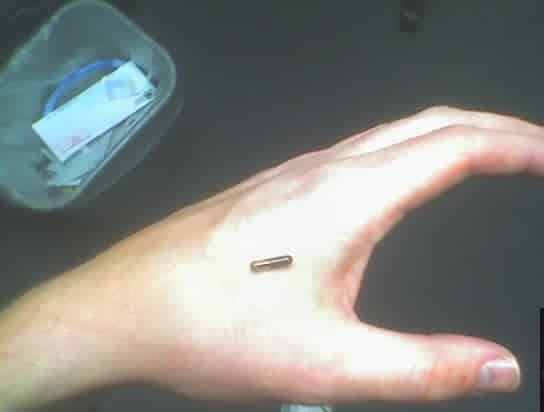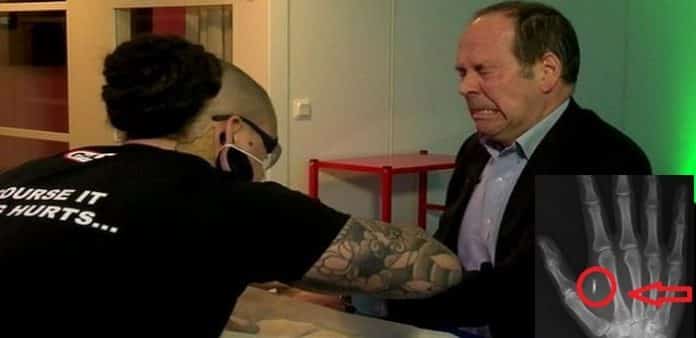Swedish firm Epicenter is offering employees a miniscule RFID chip to provide various kinds of access
Want to gain entry to your office, buy a coffee or perhaps even a dress in the store situated in your office block but have forgotten the access and credit card at home, no worries, at Epicenter, a new hi-tech office block in Sweden, you can do all of the above without worrying carrying a access or credit card. How? Epicenter is trying a different approach – a chip under the skin.
Epicenter which has setup a swank new office block in Sweden, is hoping to provide card free services to its employees by injecting a Radio-frequency identification (RFID) chip under the skin.

However not all employees are not happy with having a alien gadget injected into their skin, but the RFID chip is gaining traction among the 700 or so workers, BBC reports. “We already interact with technology all the time,” says bio-hacker Hannes Sjoblad, the “chief disruption officer” at the office block. “Today it’s a bit messy—we need pin codes and passwords. Wouldn’t it be easy to just touch with your hand? That’s really intuitive.”
A BBC journalist had one inserted and said it wasn’t too painful, but neither was it intuitive: His hand needed some twisting to activate an office photocopier.
Sjoblad and the Swedish Biohacking Group, who have developed this technology hare hoping that this is just a beginning. They already hold chip-insertion parties at a Stockholm tattoo parlor, which the BBC depicts as part of a trend that’s blending humans with technology—including smart watches, glucose-monitoring contact lenses, and the digital BioStamp tattoo that collects data on a person’s health. “Some people are horrified by this,” admits one advocate.
Sjoblad gives a valid explanation for peoples apprehension to embracing the new technology, “Years ago there was fear over vaccinations and now it seems perfectly normal to have cells injected into us. That is an early example of bio-hacking.”
Resource : Newser
